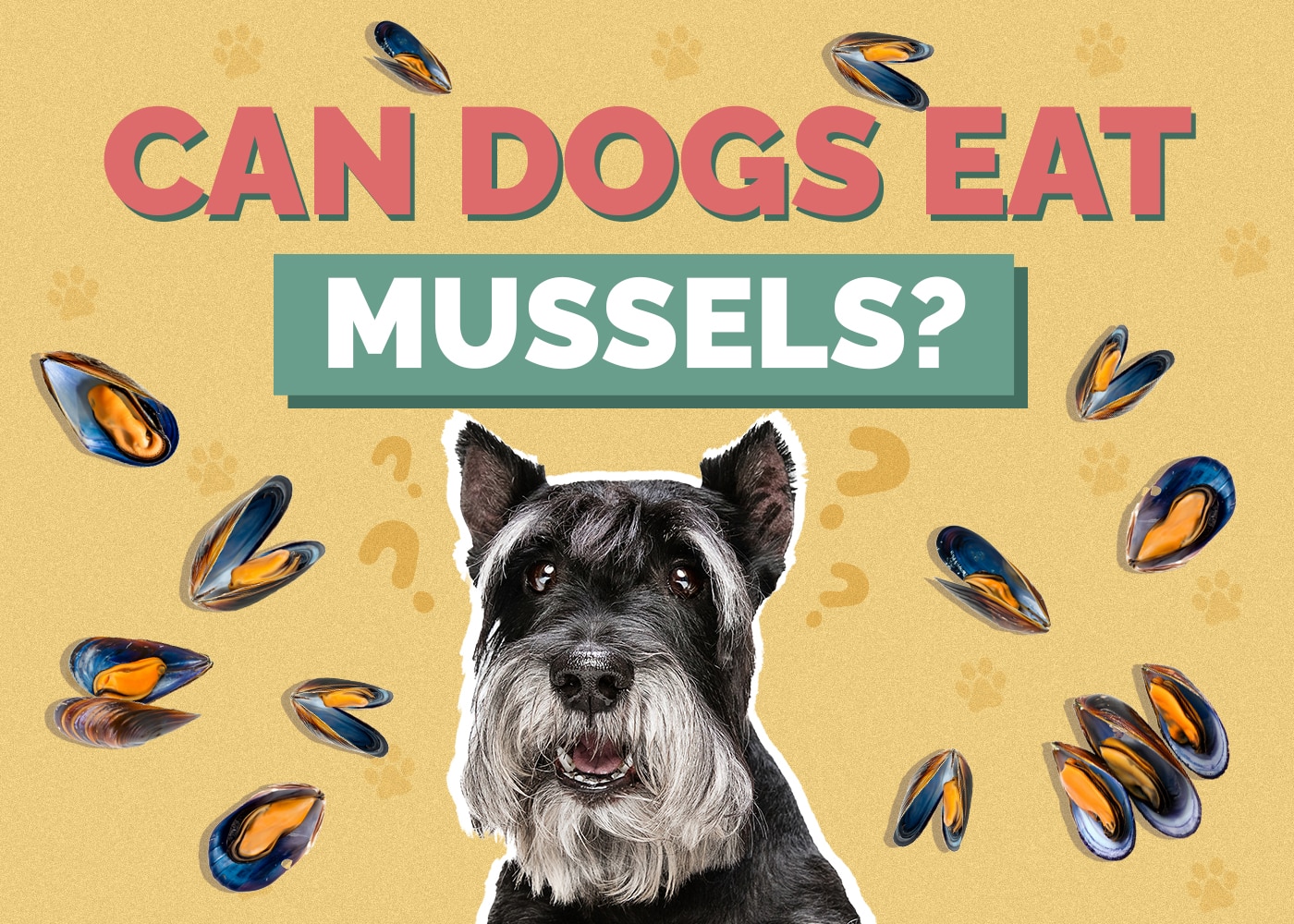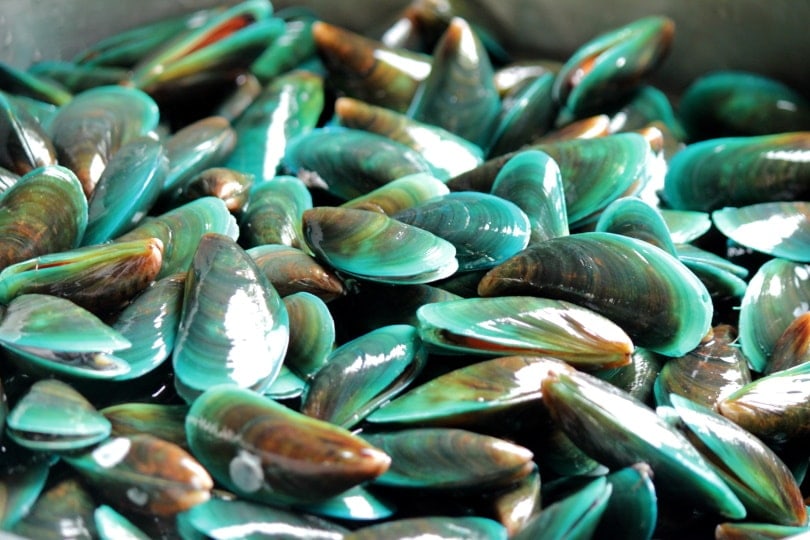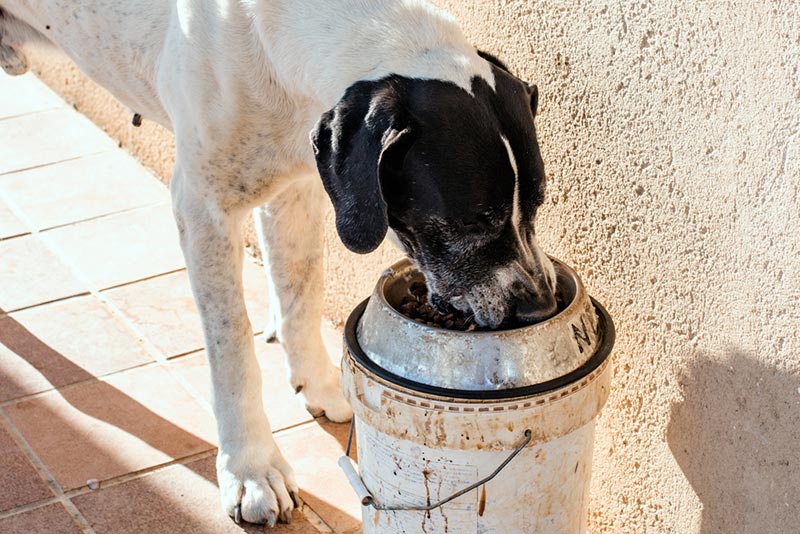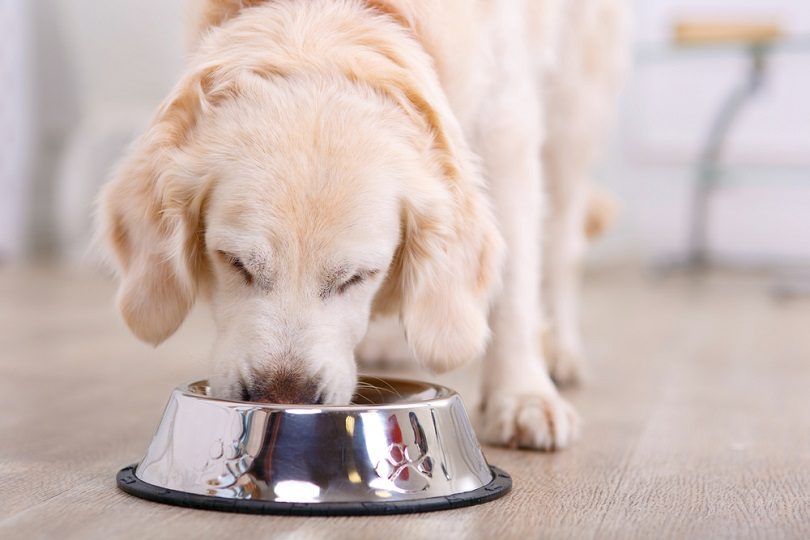Can Dogs Eat Mussels? Vet-Approved Facts & FAQ
Updated on

You’ve just brought home fresh mussels, and before cooking them up, you wonder if they would be safe to feed your dog. After all, dogs can eat fish, so are mussels safe? Are they good for your dog?
Mussels are safe for your dog and can add nutrition to their diet. But they should only be offered in moderation and always prepared correctly.
In this article, we discuss how mussels benefit your dog and the best way to prepare them so they will reap the rewards and none of the consequences.
A Little Info on Mussels
Mussels are a type of mollusk, similar to clams, that can come from freshwater or saltwater. They can make a healthy food for humans, with the blue mussel being the most commonly eaten. An issue with mussels is that they are filter feeders, which means they can consume toxins and bacteria. Properly cooking eliminates many of these harmful contaminants, but it’s possible that some might remain. Farm-raised mussels tend to be safer but can still ingest toxins.
Green-Lipped Mussels
Dogs can eat almost any kind of mussel, but the most beneficial ones are green-lipped mussels. These are only found in New Zealand and are commonly used as a canine supplement for joint health.

What Are the Health Benefits of Mussels?
Mussels contain omega-3 fatty acids which have anti-inflammatory properties that can help with conditions like arthritis and asthma. Other health benefits of mussels may include:
- Joint Health: Mussels are excellent sources of omega-3 fatty acids, glucosamine, and chondroitin, which contribute to healthy skin and coat and healthy joints. Dogs with arthritis and joint pain can benefit from eating mussels or mussel supplements.
- Antioxidants: Mussels also contain antioxidants that can aid in chronic illnesses, benefit the immune system, and help prevent cancer.
- Vitamins and Minerals: Mussels are full of essential vitamins and minerals, including calcium, iron, magnesium, manganese, phosphorus, potassium, selenium, vitamins A and B12, and zinc. These all help regulate the dog’s organ functions and metabolism.
- Low in calories: Mussels are low in calories, making them healthy treats.
- Protein: Mussels and other shellfish are quite rich in protein and contain essential amino acids. Along with that, the protein in mussels is easy to digest.
What Are the Risks of Mussels?
Dogs with food allergies and food intolerances might experience a reaction to mussels or other shellfish. You should speak to your vet before you give mussels to your dog, whether they have any known allergies or not.
If you have any experience cooking with mussels, you know that they don’t take long to spoil. You should prepare them for your dog within 2 days of purchasing and store them in the fridge if you’re not cooking them right away.
Mussels accumulate bacteria and toxins, which can lead to food poisoning. Signs include:
- Diarrhea
- Nausea
- Vomiting
- Fever
- Lethargy
- Abdominal pain
If your dog exhibits these signs after eating mussels (or anything else), call your vet for advice.

How Do You Prepare Mussels for Your Dog?
Choosing the Mussels
You’ve likely heard that you’re not supposed to choose open mussels, which is partly true. If you find an open one, give it a firm tap—if it closes, it’s still alive and safe to eat.
Avoid it if it doesn’t close. You’ll also want to avoid any mussels with cracked shells. Mussels should essentially smell like the sea, so if they smell bad, don’t eat them.
Cleaning the Mussels
Live mussels must be soaked in fresh water for at least 20 minutes. This enables them to expel any sand and helps filter out excess salt.
Mussels have something referred to as a “beard,” which should be removed by yanking it toward the shell’s hinge. This removes the beard without killing the mussel (the mussel will be killed if you pull the beard toward its opening end).
Then, transfer the mussels to another clean bowl of water, scrub off any excess sand or barnacles on the shells, and rinse them off.
Cooking the Mussels
Mussels are usually cooked by steaming or boiling. Cooking mussels is what helps remove most of the bacteria and toxins if there are any present.
When you’re cooking mussels for your dog, know that they should not be cooked with any seasonings and only be steamed or boiled in water. You’ll need to avoid oils and butter, which are fattening and unhealthy for dogs, and garlic and onions are highly toxic. Unfortunately, cooking does remove some of the beneficial nutrients, but it’s safer than serving them raw.
It takes roughly 5 minutes to cook mussels. Once they’re done, remove them from the shells (mussel shells are choking hazards and can cause injuries in the mouth and throat), and only give them to your dog in tiny amounts. This is particularly important if it’s your dog’s first time eating mussels.

Keeping an Eye on Your Dog
After your dog has eaten a bit of a mussel, keep an eye on them for any signs of discomfort. If nothing happens, your dog is likely okay to continue eating mussels, but if they experience vomiting and diarrhea, call your vet or take them to the clinic.
Even if your dog takes to mussels well, they should still only be given in moderation on occasion. You can chop up a few mussels and add them as a topper to your dog’s food.
Alternatives to Serving Cooked Mussels
You can try commercially prepared freeze-dried mussels made for pets. The process of freeze-drying helps retain most of the mussels’ nutrients, so they’re healthy and safe treats.
You can also try powdered mussels, which you can sprinkle onto your dog’s food. Almost all forms of mussel supplements made for dogs contain green-lipped mussels. Since these are only found in New Zealand, it’s not possible to feed them fresh to your dog, but they still pack a healthy punch compared to other mussels. These 2002 and 2007 studies found that green-lipped mussels helped dogs with chronic inflammatory conditions, including asthma and arthritis, by reducing pain and improving mobility.
Conclusion
Mussels are safe and healthy treats as long as your dog doesn’t have shellfish allergies, so it’s best to speak to your vet before giving any to your dog. Your vet can also let you know how many mussels are okay to give your dog, as it depends on their weight and age.
You might want to consider investing in green-lipped mussel supplements, particularly if your dog has arthritis or other inflammatory issues. Again, talk to your vet before giving any mussels to your dog, whether freshly cooked or powdered.
See Also: Can Dogs Eat Lightning Bugs? Vet-Reviewed Safety & FAQ













